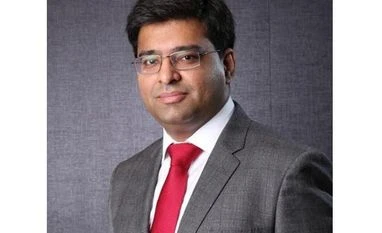Amid the volatility in liquefied natural gas spot prices, the world's largest LNG trader Shell’s India arm is betting big on the country’s ambitions to increase the share of natural gas in its energy mix. Nakul Raheja, country head of Shell Energy India, talks to Shine Jacob about the LNG market, natural gas potential in the India market as a transition fuel and the company’s aggressive plans for using LNG as a transportation fuel. Edited excerpts:
How are the global energy dynamics, LNG sector moving after the Ukraine crisis?
A tragic situation is unfolding right now at a humanitarian level in Ukraine. Of course, you've seen a number of announcements that we have made as a company in the last four to six weeks in that space.
Our first focus and responsibility lies to our own people who are in Ukraine. We have staff in Ukraine and we are looking after their well being and safety. We have made public announcements in terms of pulling out our investments in Russia, but also subsequently in terms of reducing our dependence on the hydrocarbon chains actually coming out of Russia, whether for crude or petroleum products, or for LNG.
About one third of Europe's gas actually comes from Russia. At the moment, it is still unclear to fully understand how this is going to play out over a period of time, particularly in the gas space.
Do you think price volatility is a concern in the LNG space?
High prices, more specifically persistently high prices do not inspire confidence in customers. So certainly to the extent that we've had elevated spot LNG prices for the last several months, that is certainly leading to concerns in the minds of many of our current and potential customers. It is also true that spot prices have been extremely volatile. It was less than $2 per mmBtu two years ago and $30 now.
In 2020, we were benefiting from lower spot prices and pulling as much LNG we could supply into the country. Future bodes well from an LNG perspective for India. I think, We've never had more supply options in our history. So, all of that should continue to contribute to the dynamism in the market. In terms of long term LNG prices, volatility has been a lot less. If we are looking for gas to play a long term role in fertilisers, city gas, steel, refineries, petrochemicals, cement and so on, we need to think in terms of our long term energy security
How do you see India’s target of raising the share of natural gas in the energy mix to 15 per cent?
We see a very bright future for gas in India. Renewables are also a very compelling source. For India's own energy transition, but more broadly for the world, I think that is something that we should all support. I hope our 500 gigawatts ambition and even beyond are delivered over a period of time.
The challenge with renewables is around intermittency. The wind doesn't always blow. The sun doesn't always shine, and it doesn't always rain in the quantities and in the time frame that you want. And therefore the challenge in the transition phase, in particular, over the next decade or two, is going to be how you manage that intermittency in a way that does not threaten your energy security. For this, we think gas has a tremendous role to play. We should still encourage renewables, but in partnership with gas. So that gas can come in, manage the intermittency and give us the best of both - a decarbonised electricity grid with the lowest carbon footprint.
How do you see LNG as a transportation fuel in India?
Potentially we can see a five-fold increase in terms of how much gas is going into the sector in 10 to 15 years. We also see a tremendous opportunity in the heavy duty segment for LNG to play a direct role as a transportation fuel. India's a market where this can become a viable business. If we can encourage our OEMs to make LNG trucks in India, LNG buses in India that may create a long runway for gas in this space and make a big contribution towards that 15 per cent target.
We are now actually in the process of setting up our first site in Gujarat near Surat where LNG will be available as a transport fuel for trucks or buses or heavy duty customers in the country for the first time, and that is a business, which if we get right as a country and as an ecosystem, will scale up and allow us to create a bigger presence downstream.
You were reportedly in the race for some renewable energy companies. What is your take on this?
I can't comment on specific potential transactions. Shell has committed to a net zero emissions target of its own globally as a company, and we've said we want to become net zero by 2050 or sooner in step with society. I'm trying to partner with our customers on their journeys as well, and obviously a big part of that is a switch to electricity and to switch to lower carbon or zero carbon forms of energy in general. We see exciting opportunities in that space in India.
Unlock 30+ premium stories daily hand-picked by our editors, across devices on browser and app.
Pick your 5 favourite companies, get a daily email with all news updates on them.
Full access to our intuitive epaper - clip, save, share articles from any device; newspaper archives from 2006.
Preferential invites to Business Standard events.
Curated newsletters on markets, personal finance, policy & politics, start-ups, technology, and more.
)